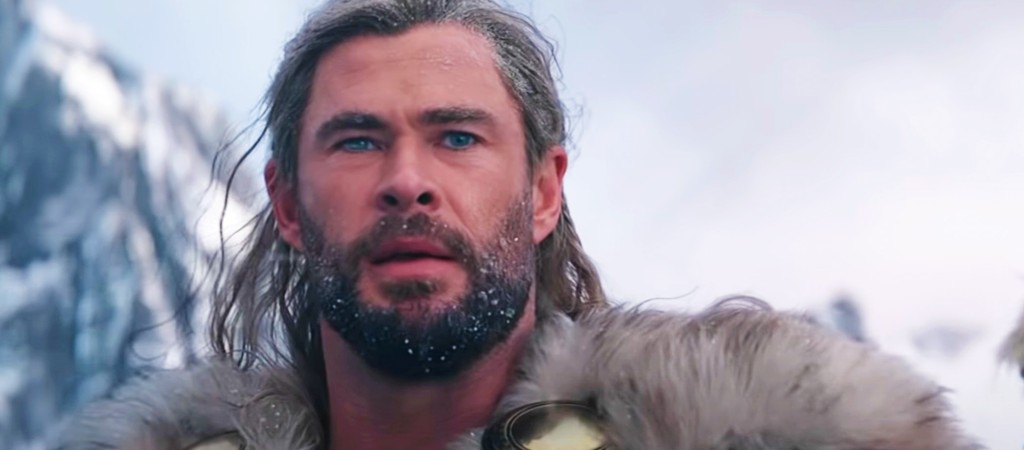Thanks to Taika Waititi revitalizing the Thor movies with 2017’s Thor: Raganarok, the anticipation has been through the roof for the director’s follow-up, Thor: Love and Thunder. Not only does the film reteam Waititi with star Chris Hemsworth, but it brings in Natalie Portman to play Mighty Thor, a fan-favorite character introduced in Marvel Comics. Christian Bale is also along for the ride as Gorr the God Butcher, which is turning heads due to the actor making the leap from playing Batman to joining the Marvel Cinematic Universe.
Of course, the big question is: Does Love and Thunder deliver the goods as well as Ragnarok? Judging by the first round of reviews, not quite. While there’s no shortage of praise for Love and Thunder, there is an overwhelming consensus that it doesn’t quite hit the same mark as Ragnarok. Whether that’s crucial to the overall experience or not depends on the critic, but you can see from the snippets below that the reviews are definitely mixed.
Mike Ryan, Uproxx:
I do like Thor: Love and Thunder, but not quite as much as Ragnarok. And the more I think about it, the more I think Waititi’s irreverent style works best when a good chunk of the movie is self-contained at the Grandmaster’s palace. The tone of Ragnarok remains, the actual plot of Love and Thunder doesn’t feel as structured. There’s a lot of fun, zipping around the galaxy, but at times I had to remind myself, wait, what’s going on here again? And then I had to ask, does it matter? Then I decided, yes, it does matter at least somewhat.
Brian Truitt, USA Today:
There is more than enough magic, music and muscle to go around – everybody’s so ripped, “Love and Thunder” often seems like a Frank Frazetta painting come to life. Waititi is equally adept at crafting the MCU’s answer to “Flash Gordon” with “Ragnarok” or delivering defining, dazzling work such as “Jojo Rabbit.” And here he gives us a surprisingly personal superhero jam with extraordinary depth, infusing the delightfully fizzy narrative with queer characters, religious themes and a compelling conversation about the differences between mythic gods and all-powerful good guys.
David Rooney, The Hollywood Reporter:
Dipping less rewardingly from the same well in Thor: Love and Thunder, Waititi pushes the wisecracking to tiresome extremes, snuffing out any excitement, mythic grandeur or sense of danger that the God of Thunder’s latest round of rote challenges might hope to generate. Chris Hemsworth continues to give great musclebound himbo, but the stakes never acquire much urgency in a movie too busy being jokey and juvenile to tell a gripping story.
Valerie Complex, Deadline:
The beauty of Ragnarok is its focused storytelling and poignant message, while Thunder is a little all over the place. But Waititi’s comedic timing, and talent for creating dynamic action scenes, is too good to ignore, though it’s missing crucial elements that would push the superhero movie from being good to great.
Brian Lowry, CNN:
The impressive mix of tones and styles that director Taika Waititi pulled off in “Thor: Ragnarok” largely fizzles in “Thor: Love and Thunder,” which isn’t as funny as it wants to be, as stirring as it needs to be or romantic as it ought to be. Although well paced at just under two hours, instead of the hoped-for fireworks this comes a little too close to feeling like a post-Fourth of July dud.
Tom Jorgensen, IGN:
He’s been part of saving the universe for a long time now, and Thor: Love and Thunder has no illusions about needing to push the character in a new direction. And that’s fine; Love and Thunder succeeds in honoring his journey, even if it doesn’t offer much new for the MCU at large.
Owen Gleiberman, Variety:
Like “Thor: Ragnarok,” the movie was directed and co-written by Taika Waititi, the New Zealand sleight-of-hand-prankster-who-is-also-a-serious-filmmaker, and it builds on the earlier film’s highly winning tone of skewed flippancy. But it also, like “Ragnarok,” possesses an offbeat humanity that justifies the japery. Waititi has the wit to see that if you aren’t mocking a Marvel movie as you’re making one, you might be taking it more seriously than the audience does.
Scott Mendelson, Forbes:
Marvel’s Thor: Love and Thunder tells a tale of a title character who has lost his drive, his purpose and his mojo. Frankly, it shares those core problems and becomes a metaphor for Marvel’s entire “Well, what now?” Phase Four. It has the feel of a party that no one wants to be at, or a film that only exists because Marvel needed a safe sequel amid franchise starters, with the head DJ furiously shouting at the guests to dance, laugh and act like they are having a fun time.
David Ehrlich, IndieWire:
“Love and Thunder” is clouded by its uncertain place in the universe from the moment it starts. And yet, the same thing could be said about Thor, whose mega-swole aimlessness mirrors that of his new movie in a way that sometimes allows this chapter of the MCU to feel more intimate and personal than many of the 28 installments that came before it. Even moving, on occasion.
Leah Greenblatt, Entertainment Weekly:
If Thunder, with its cheerful melee of starry cameos, in-jokes, and Cliffs-Notes mythology, feels a lot like franchise fatigue, it also has frequent moments of gonzo charm, thanks largely to the Technicolor lunacy of writer-director Taika Waititi and a cast that seems inordinately game to follow his lead.
Thor: Love and Thunder opens in theaters on July 8.







